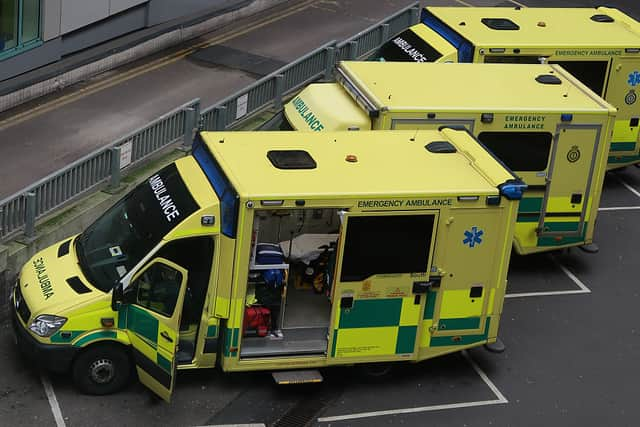Critical incident sounded by ambulance trust in Bristol & South West - what it means, where to get help
and live on Freeview channel 276
The ambulance trust that serves Bristol and the surrounding area is urging the public to think before dialling 999 after declaring a “critical incident”. The South Western Ambulance Service NHS Foundation Trust (SWASFT) said it was currently facing “extreme demand” following the four-day Christmas break.
SWASFT revealed that at 11.30am on Wednesday (December 28) there were 482 patients waiting for ambulances across the South West region, as well as 106 patients waiting outside hospitals in ambulances for handover. It led to the trust declaring a critical incident that day, as the pressures its staff were experiencing were affecting its ability to respond to patients.
Advertisement
Hide AdAdvertisement
Hide AdWayne Darch, SWASFT’s deputy director of operations, urged residents in the South West to “please help us” by only calling 999 if a patient has a life-threatening condition or illness. He added: "If the condition of a patient is not life-threatening we may direct them to an alternative service. So please help us by accessing the right service for the care you need.
“We are doing all we can to manage these winter pressures and we are sorry that we are unable to respond to some patients as quickly as we would like. We will get to you as soon as we can.”
Mr Darch also urged people not to call back to ask for an estimated time of arrival of an ambulance. “We cannot provide one,” he said, “as it blocks our lines for other callers.
“I’d like to reiterate SWASFT’s thanks to our people and all our NHS partners working to deliver the best possible care they can for patients over the festive period.”
Advertisement
Hide AdAdvertisement
Hide AdA number of hospital and ambulance trusts across the UK have already declared critical incidents as the NHS grapples with demand over the colder months. Industrial action by some nursing and ambulance unions have also hampered services, with more strikes threatened for January should talks with the Government over pay not go ahead.


What should I do if I need help?
Only dial 999 in a life-threatening emergency such as cardiac arrest, loss of consciousness, fits that aren’t stopping, chest pain, breathing difficulties, severe bleeding, severe allergic reactions, suspected stroke and serious head injuries.You can find a list of ambulance categories on the NHS website.
Alternatively, seek out help via the following services:
- Self-care – visit NHS 111 online for self-care advice for things like grazed knees, coughs and colds
- Pharmacy – visit your local pharmacy for headaches, upset stomachs, aches and pains
- NHS 111 – visit NHS 111 online or call 111 for advice and support 24 hours a day, seven days a week
- GP – call your GP for symptoms that won’t go away
- Minor injury unit – attend your local minor injuries unit for urgent but not life-threatening conditions and injuries such as sprains, fractures and burns
Comment Guidelines
National World encourages reader discussion on our stories. User feedback, insights and back-and-forth exchanges add a rich layer of context to reporting. Please review our Community Guidelines before commenting.
